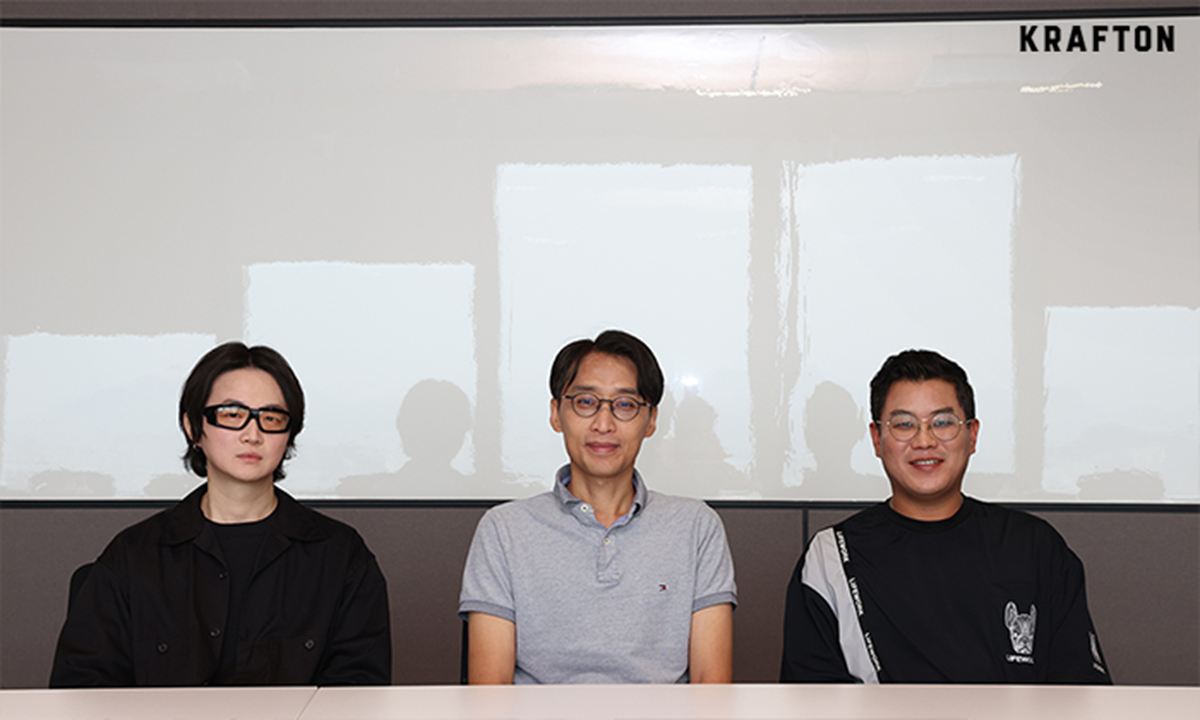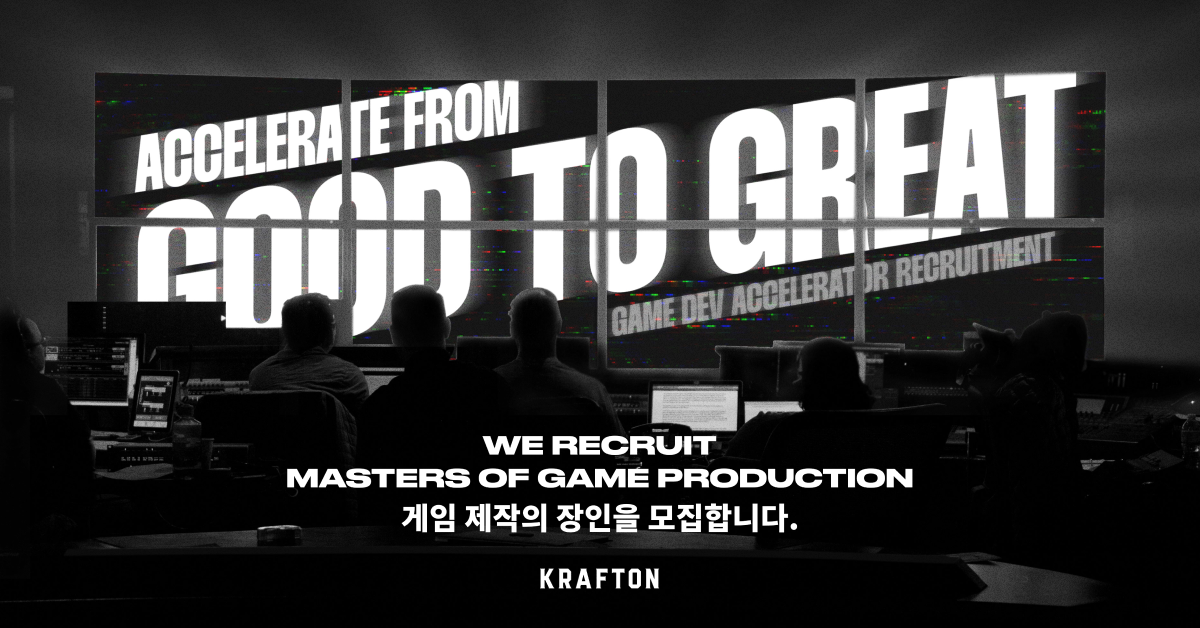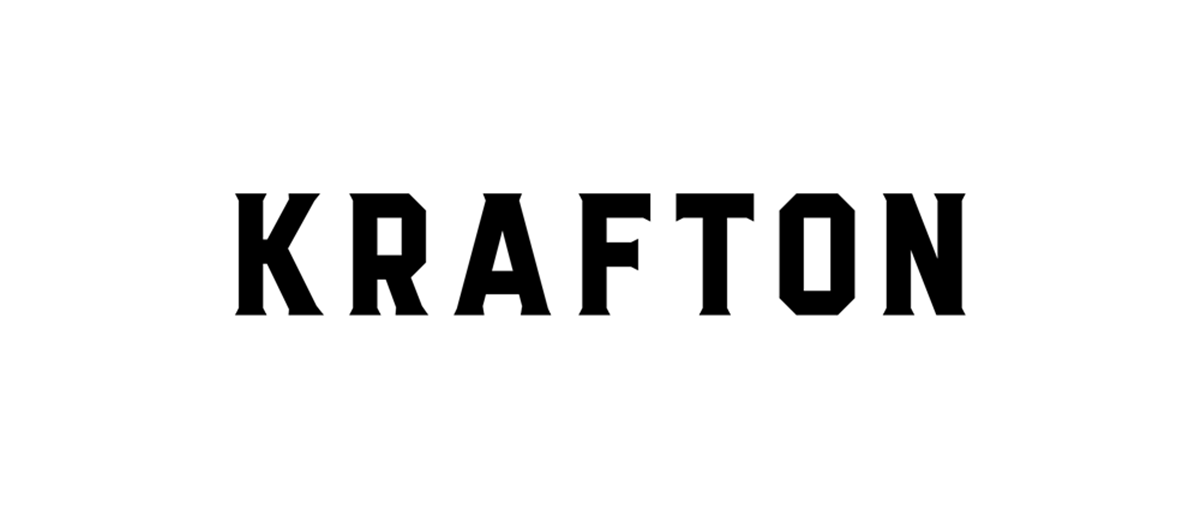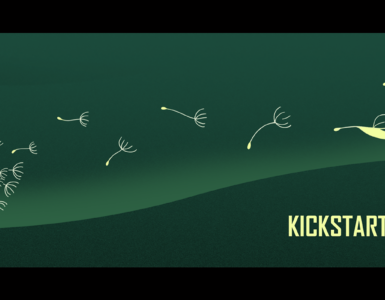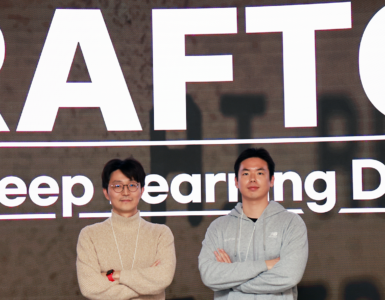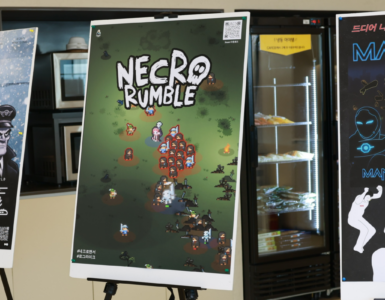An interview with three game dev accelerators at KRAFTON
From making a game to successfully launching it in the market, the process is just like navigating a bumpy voyage. To create an experience that satisfies the vast global markets, diverse platforms, and the fans with high standards, there are a myriad of things to be considered as well as lots of variables that needs responding. At KRAFTON, there are people who come forward to support such a tough journey of game production. Keep reading to learn what game dev accelerators do in this interview with Hyeongyu Park, Haksu Lim, and Mingeun Park.
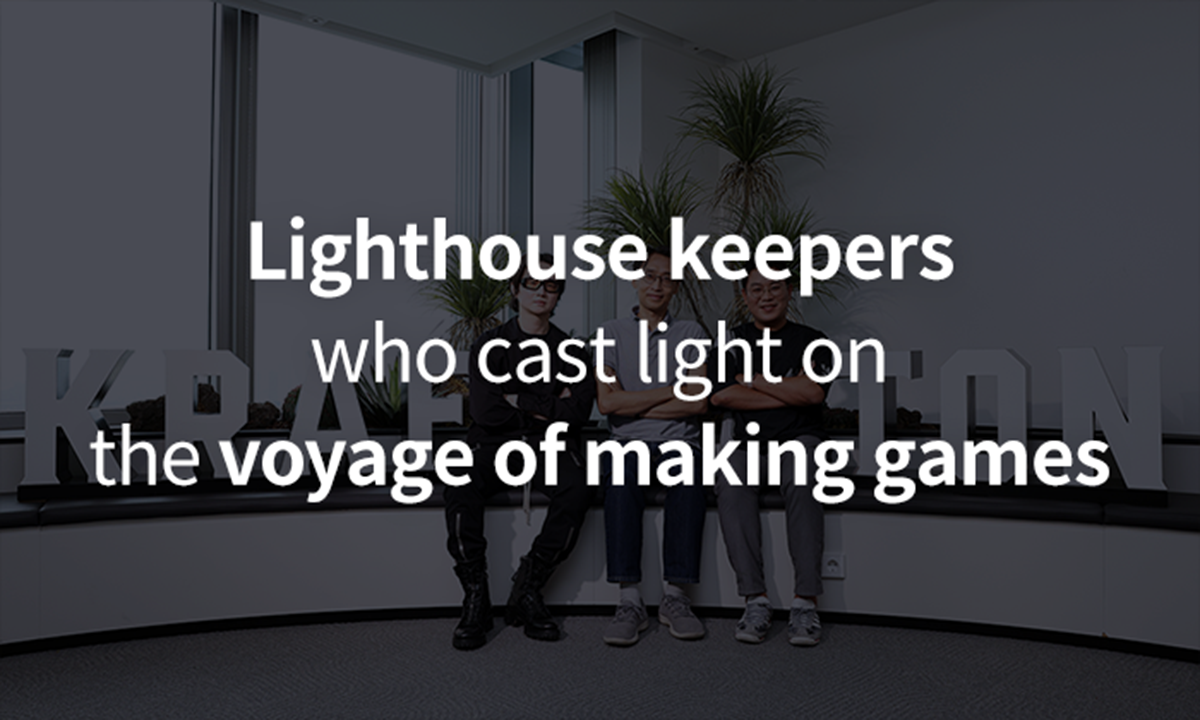
Nice to meet you! Could you introduce yourself to our readers?
Hyeongyu Park: Hello. I’m Hyeongyu Park. I started my career in the game industry back in 1994. It was a part-time job. I took part in designing games of diverse genres, ranging from action to shooter, simulation RPG, real-time strategy, MMORPG, and even the Bishoujo game. In particular, I was a part of providing the live service of an MMORPG.
In 2017, after devoting myself for too long in making games and I felt my power and energy already ran out. I decided to take a break for a while. I used to consider myself as a natural-born game designer, but I changed my career path to become a game “consultant.” I started to review and help launching various genres of games in many companies, including KRAFTON. Based on such experiences, I’m now working as a game dev accelerator here.
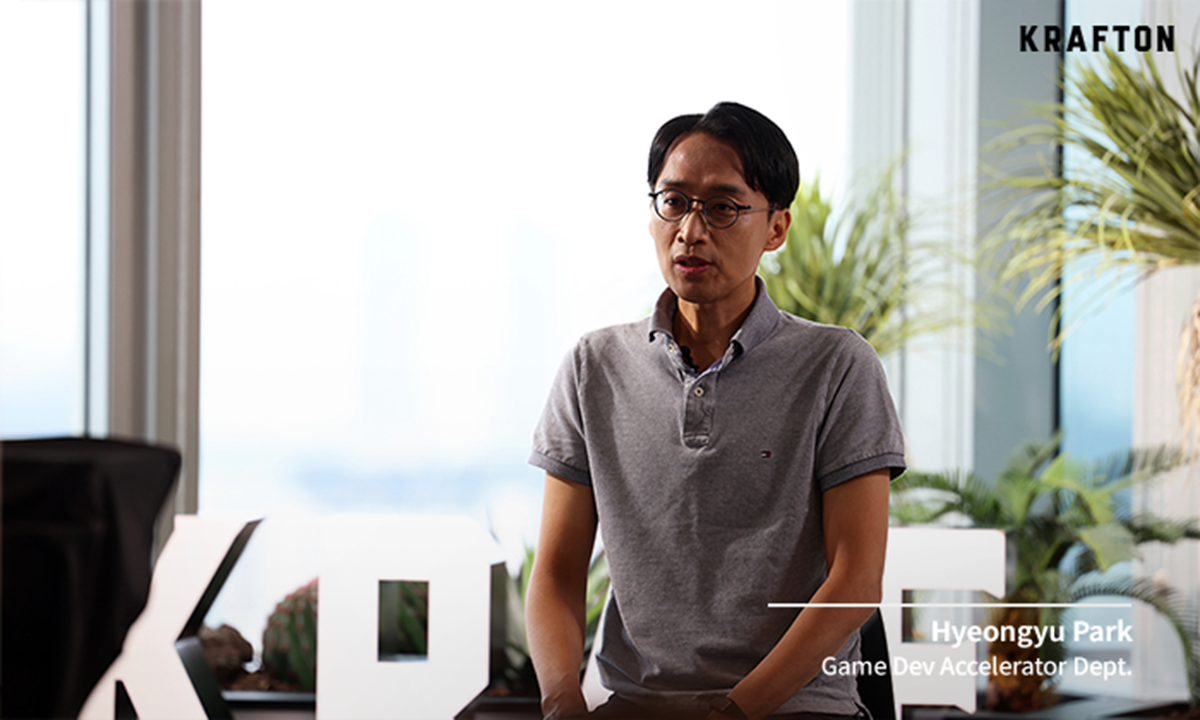
Haksu Lim: Hello. I’m Haksu Lim, a game accelerator and an art advisor of KRAFTON. I entered the game industry in 2000 as an illustrator of PC RPG called “Arcturus.” Later, I became the art director of PC MMORPG “Granado Espada” and that’s when I dived deeper into the way of game developer.
I took part in the making of PC MMORPG “Blade & Soul” at NCSOFT and worked with multiple business both at home and abroad such as Marvel Entertainment, Capcom, Nexon. In this period, I’ve worked as a creative director handling new intellectual properties (IP), an art consultant and a lead artist for the last 22 years, specializing in creation works involving new IPs.
Mingeun Park: Hello, I’m Mingeun Park. I’m working as a tech accelerator at Game Dev Accelerator Dept. Before joining KRAFTON, I was a client and engine programmer of PC MMORPG and mobile game projects at NCSOFT, Neowiz Games, BNE Entertainment, SHIFT UP Corporation and LINE GAMES Corporation. In addition, I worked as a professor at NHN NEXT and software department of Kookmin University for game-related studios.
Three of you seem to have extraordinary careers in the industry. How did you join KRAFTON?
Hyeongyu: I’m one of the cofounders of Bluehole Studio, which later became KRAFTON. At that time, I wanted to create an environment where developers can focus solely on development. I also participated in the development of MMORPG “TERA” as a director.
Haksu: One of the art directors at KRAFTON offered me to work together in this company. He was one of my former colleagues who made Granado Espada together. I had mixed feelings when he unexpectedly contacted me after so long time for a job offer. It was also a very touching moment when I met KRAFTON CEO CH Kim and many other “PUBG: BATTLEGROUNDS” developers again whom I worked with when I was an art consultant for GINNO GAMES. Those reunions made me realize that I’ve worked with so many amazing people in this industry.
I have a sense of responsibility as a creator that I must comfort the world and make people happy and impressed through games. Working with my colleagues here at KRAFTON, I’d like to build a healthy society.
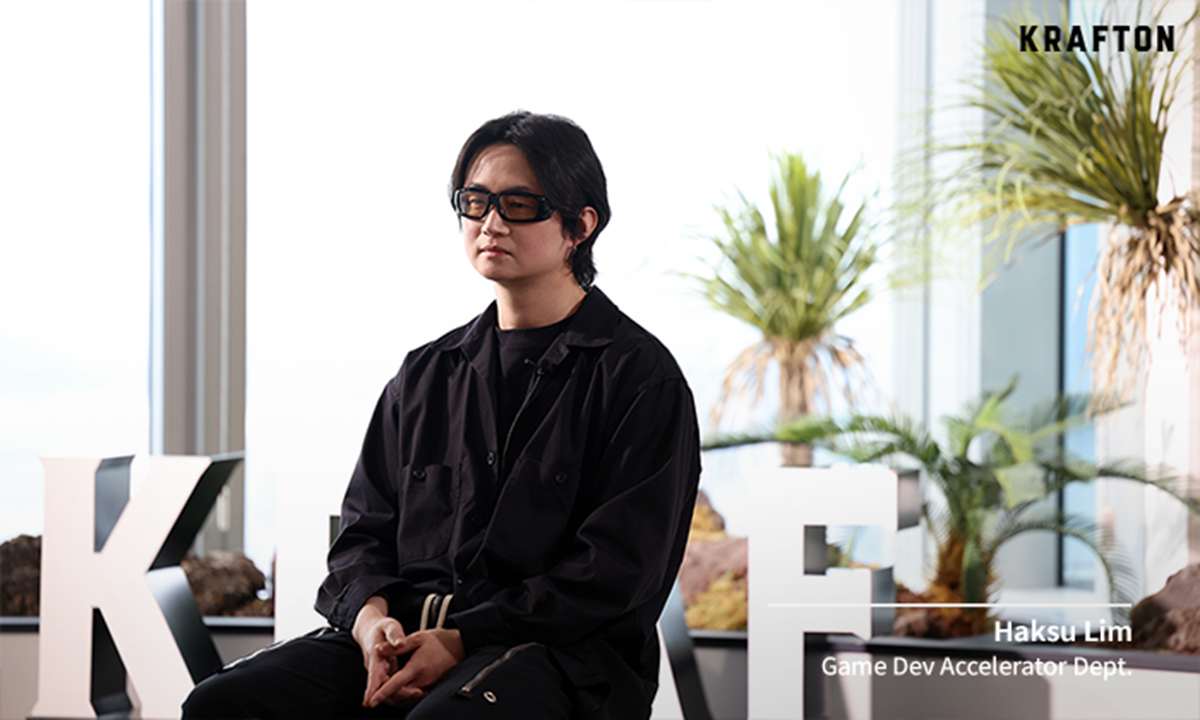
Mingeun: Of course, I loved teaching students as a professor. But I started my career as a game programmer, and I’ve always had a passion to go back to my field and make a game. Meanwhile, I was offered to join a development project at KRAFTON and I did, wishing it would be a nice last project to round off my game development career.
What are your roles and responsibilities at Game Dev Accelerator Dept.?
Hyeongyu: What I do here can be divided into three categories. First, I review proposals for new projects and help write a proposal. KRAFTON gets many proposals from both inside and outside. I don’t check all of them, but if there is a proposal that is meaningful enough for the management to examine, I review it. In particular, if it is suggested by people working in KRAFTON, I sometimes help the proponents enhance the probability of getting the approval. It’s because passing the review stage is obviously beneficial for both KRAFTON itself and the proponents.
Sometimes, there are teams in need of help in making games. For example, a team may have a great idea but without enough capability to realize it in the game, or another team may be outstanding in development without am exceptional idea. In such cases, I sometimes help them secure the required manpower to satisfy their respective need.
Second, I counsel on development and decision making. For instance, when a new build is ready, I play it through and provide the developers with my feedback. If there are crucial issues, I try to discuss those matters with people to find a way to solve the problems altogether. Third, KRAFTON runs an organization called “Challengers Dept.” which help incubate new projects. It reviews proposals or game builds every six weeks and I give feedback in the game design aspect. I also speak at a seminar or a lecture for the those are in this department on some subjects helpful to develop games.
Haksu: The term “accelerator” might be new in the game industry, though it’s a quite familiar word in the venture capital sector. Game dev accelerators at KRAFTON provide meaningful feedback and advice to the developers who are trying to start a new project at KRAFTON HQ and the independent studios, aiming at literally accelerate “Good-to-Great” game production. We also review games and production capabilities of promising dev teams and studios when the company is considering investing in them or acquiring them. In short, we’re like “consultants.”
As I’ve been a developer for a long time, I sincerely hope that our developers can find a meaning in their journey. I build consensus and solidify the relationship with dev teams, feeling like I’m a part of those teams.
Mingeun: As a tech accelerator, I provide technical support for existing projects with issues like optimization and bugs while propping up tech directing on a variety of new in-house projects. Currently, I’m helping Striking Distance Studios wrap up its new project, The Calisto Protocol, which is going to be released at the end of this year.
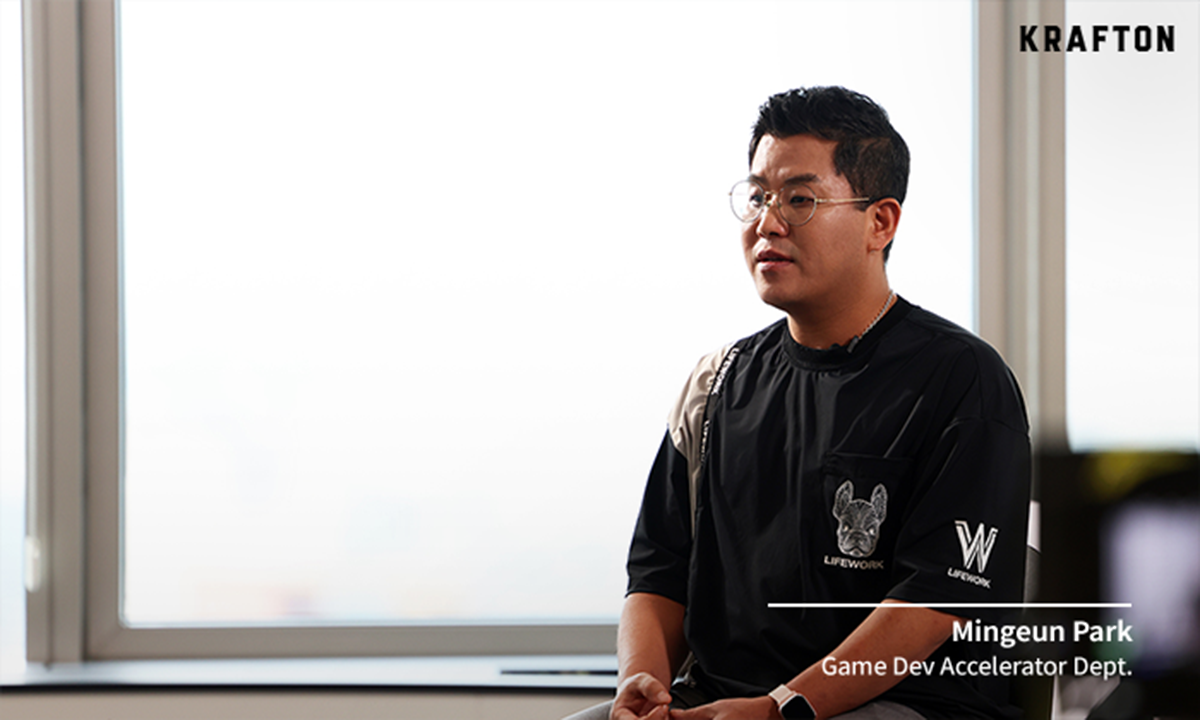
Could you define a game dev accelerator in single word?
Haksu: I think we are like “lighthouse keepers.” We help developers on a rough journey to make their voyage smooth and complete the mission. In the darkness stacked with problems, we shine a light which leads all of us to a solution and solve the problems together. I believe what we do is similar to that of a lighthouse keeper.
Mingeun: I’d like to define our role as a “buffer” who elevates its allies’ capacities for a while in a game. Comparing a journey of game development to gameplay, I believe a buffer’s role is exactly what we do as game dev accelerators. We largely promote the strength of dev teams, allies, and accelerate game developing process like a buffer.
Hyeongyu: I think a game dev accelerator can be a “nag.” It is developers and the management who make most of decisions related to game development. So, game accelerators are responsible for delivering information and opinions that help them make mutually acceptable decisions. That’s why we should nag or give them harsh feedbacks sometimes.
While you work as a game dev accelerator, what kind of new experiences did you have?
Haksu: Focusing on one project for years as a developer, you often miss the opportunities to interact with other developers who work on different projects. At Game Dev Accelerator Dept., you’ll have unique experiences of keeping in touch directly and indirectly with a variety of challenges happening inside KRAFTON HQ and the independent studios worldwide, trying to puzzle out their problems together. Therefore, you can learn how to study issues with wider perspectives and diverse angles.
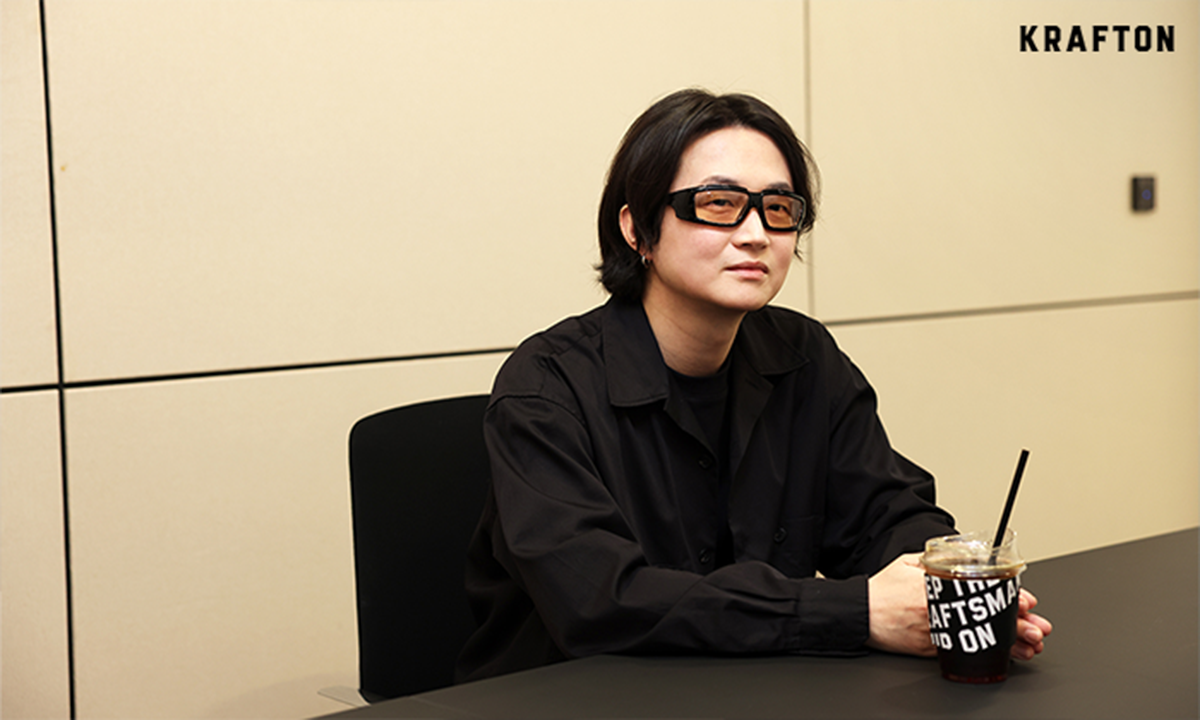
Hyeongyu: You can have a more objective view on games. It is easy for whoever takes part in development to think and decide something in a developer’s view rather than in a customer’s viewpoint because the top priority of the developers can always be the project. That’s what happened to me in the past. But now I can see many different aspects of a project, as I don’t develop a game myself. I usually give feedback on them. And I mostly give those feedback in the written form. Repeating it, you can also learn how to tell the essence in a few selected words.
Mingeun: You can experience diverse projects in a short period of time at Game Dev Accelerator Dept. For many developers who often get to indulge into a single project for years, I believe it would be a new experience to learn various development projects while supporting them to solve their current issues.
I went on a business trip to Striking Distance Studios in San Ramon, California, last month. I could experience and learn much there, including the atmosphere of a game studio in North America and a development process for diverse platforms.
What was the most rewarding moment working in Game Dev Accelerator Dept.?
Hyeongyu: It hasn’t been long yet since we started working as game dev accelerators, so it would be better to talk about “consulting” which is similar job to what we do as game dev accelerators now. It was when I was working as a consultant for another company. With only three months left to launch, the project was facing its termination. It indeed was a crisis. So, I started an open discussion to talk about relevant issues to help the dev team and the management narrow down the gap between them. Fortunately, they resolved misunderstandings and the project was launched successfully.
Likewise, it feels rewarding the most when I can help developers solve their troubles. My role as a consultant is to support developers to find answers for various problems they face. It can be difficult for the stakeholders to openly talk about the issues, like when to release the game, how to interpret the results of tests, narrowing down subtle opinion gap between the dev team and the management. Therefore, they often just ignore those matters, which sometimes grow into a huge trouble later. As my background enabled me to take consideration of both sides, I mean the developers and the management, I can understand their differences in opinion to some extent.
Haksu: I joined KRAFTON just recently, but I’m interacting with quite a lot of dev teams here. The unique identity and the core experience that moves core fans are never easy to get. Dev teams sometimes thank me on the meeting or send me a thank-you message and it’s very rewarding for me, feeling that I’ve been helpful (Laughs). I guess my colleagues and I would be fulfilled the most at the moment when our games are beloved by the consumers.
Mingeun: As Game Dev Accelerator Dept. was organized not long ago, I didn’t experience any satisfying moment yet. But I expect I would have such an experience when a project that we support turns out to be successful. It would be very great for the projects we’re supporting now to pay off in the global market, with my name listed on the credit roll.
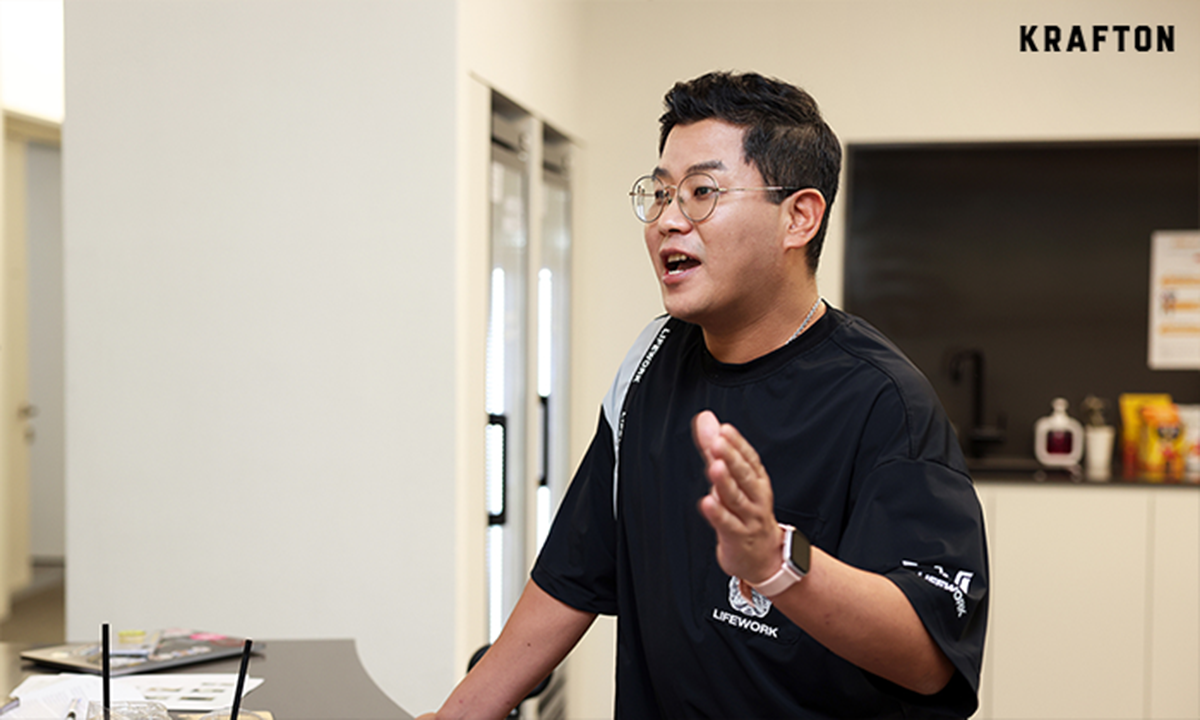
You have been in the game and content industry for a long time. What’s your goal for the moment?
Haksu: As a member of the game industry, I want to lay the foundation where we can continuously create contents that the whole world loves and empathizes with. I hope many outstanding KRAFTON people keep challenging on a hope on that foundation. And I expect myself to return to a creator and start a new challenge someday.
Mingeun: My goal is to be an expert who can support technology field for any projects from AAA games like The Callisto Protocol to small projects that pioneer a new field and to fully support developers at KRAFTON to try diverse genres of projects. Due to the nature of game development, a studio’s technical capability usually determines the limit of its project when they attempt a new challenge. As a tech accelerator, I hope KRAFTON developers to try a variety of fields for the future.
Plus, I want my name on the credit rolls of every new project as a tech accelerator in the future (Laughs).
Hyeongyu: I want to give dev teams solid support so that they can successfully release their projects. I usually give them advice based on experiences rather than theories so far. But I’d like to analyze a number of cases and make data on what decisions should be made at what point in the long journey from the proposal to the launch afterwards.

What kind of people do you want to work with at Game Dev Accelerator Dept.?
Mingeun: I want work with people who have not just profound expertise in their own field but also experiences in diverse areas. I believe their capabilities to solve problems that come up during a game development process and what they’ve learned from experiences would be absolutely helpful at work. Also, as we have to cooperate with many studios, we shouldn’t be reluctant to working with unfamiliar people. In addition, we probably go on many business trips overseas, so it would better if you like to travel abroad (Laughs).
Hyeongyu: You must have experiences making games, obviously. As it’s very essential to understand developers, development experiences are much needed, and it would be much better if you have launched your games and understand the customers and the management.
Communication skills are very crucial, too. If you can express your opinions logically, it would be very helpful. If there is anyone who is exhausted after yearlong efforts to make games and thus is currently not in a condition to do that again, and yet still bears the love for games and the game industry, you would be the perfect match for Game Dev Accelerator Dept.
Haksu: One who pursues broad values. One who is excited to provide insights based on experiences and capabilities and help one’s organization and colleagues. One who finds scattered issues at game development scene and solve them with colleagues in an innovative way, being active and openminded. I want to work with those people.
Plus, as we frequently and continuously cooperate and interact with a variety of organizations inside and outside and many other colleagues, we welcome the ones who respect others and value discovering solutions with colleagues rather than insisting only on their points.
Lastly, could you give advice for those who are interested in applying for Game Dev Accelerator Dept.?
Hyeongyu: This position, a game dev accelerator, might yet be unfamiliar to you. However, as it is getting harder and harder for developers to launch their games, I think a game dev accelerator’s value would get bigger and bigger in the future. It’s a position where you can look forward to building your career in a long term.
Besides, communicating with many developers, you might get passion on game development once again and be able to have a chance to start your own project. In this regard, I’d say this job would be very interesting for experienced developers.
Haksu: If you’re interested in the position, you must be motivated already. Just don’t hesitate. Thinking and experiencing are totally different. So, you just can figure out if this job fits for you while working as a game accelerator and adjusting culture fit flexibly in varied angles. It’s very rare for you to work at such department in Korea. I hope to build a system and culture together with you.
Mingeun: It’s certainly a cool life and an opportunity for the future as a game developer to have new challenges with diverse domestic and international development studios. I dare say that Game Dev Accelerator Dept. is a perfect place where you can fully use your outstanding competencies and experiences.
